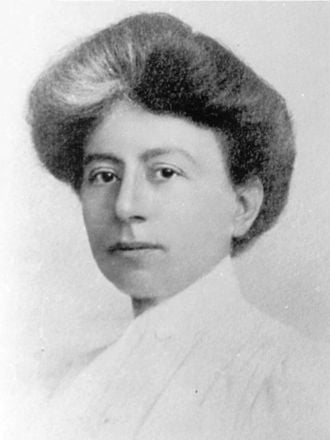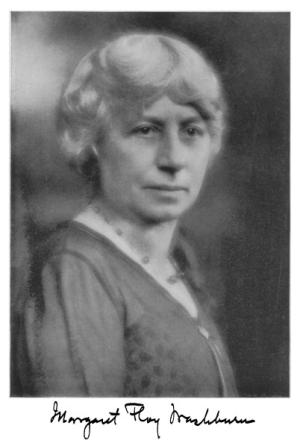Margaret Floy Washburn, PhD (1871 – 1939): First Woman to Earn a PhD in Psychology in the USA
Margaret Floy Washburn, PhD (1871 – 1939): First Woman to Earn a PhD in Psychology in the USA

Margaret Washburn, a pioneering female psychologist in the early 20th century, was the first woman in the United States to earn a PhD in psychology (1894). During an era when universities refused to grant graduate degrees to women, this accomplishment marked a major milestone in the advancement of women in the field of psychology.
Born in 1871, Dr. Washburn grew up in New York City (Harlem). After graduating high school at age 15, she attended Vassar College to study philosophy. As an undergraduate she developed a budding interest in psychology, leading her to pursue study at Columbia University’s recently established psychological laboratory. Columbia did not admit female graduate students at the time, but she was able to get the university to agree to a special dispensation granting her permission to sit in on courses led by future mentor James McKeen Cattell. Cattell welcomed Washburn into his laboratory, eventually encouraging her to continue her education at an institution that would grant her a doctoral degree. This brought Washburn to Cornell University, where she worked with Edward Titchener, a leading figure in experimental psychology. Washburn conducted experimental studies on animal behavior as well as basic psychological processes of sensation and perception. She graduated from Cornell in 1894 becoming the first woman in the US to receive a PhD in psychology. Other female graduate students of the time, despite exemplary research and study, were being denied degrees due to their gender. This included fellow trailblazer Mary Whiton Calkins – the first female president of the American Psychological Association – who had been denied a PhD in psychology from Harvard when trustees refused to grant the degree to a woman.

By the early 1900’s, Washburn returned to Vassar and became an Associate Professor – a title very rarely awarded to women at the time. She would remain at Vassar for the rest of her career. She became a leader in the field of comparative psychology – the study of similarities and differences in behavior and cognition across species – publishing her best-known work, The Animal Mind, in 1908. She went on to write over 100 scholarly papers on a variety of topics including animal behavior, consciousness, motor theory, and sensory processes. Many of her articles appeared in the American Journal of Psychology, a scientific journal she helped found. She also served as editor for Psychological Bulletin (1909-1915), and advisory editor for Psychological Review (1916-1930). During her years at Vassar, she was a beloved teacher and developed a robust undergraduate research lab. Her desire to work with undergraduates, where co-education was more accepted compared to graduate study programs, was fueled by an interest in bringing more women to the field of psychology and scientific study. Many female students from Washburn’s lab published scientific articles under her mentorship. She never married, as marriage forced many women of the era into giving up their teaching jobs, choosing instead to build a career in academia despite the numerous hurdles faced by women in this setting.
Washburn was elected the 30th president of the American Psychological Association in 1921, only the 2nd female to serve in that role. Among other accomplishments, Washburn was the first female psychologist and second female scientist to be elected to the National Academy of Sciences in 1931. She retired from Vassar (Emeritus Professor of Psychology) in 1937 following a stroke, and passed away in 1939 at age 69. She is remembered today not only for her research and contributions to advancing psychology as a science, but for being part of a trailblazing first-generation of female psychologists.
















